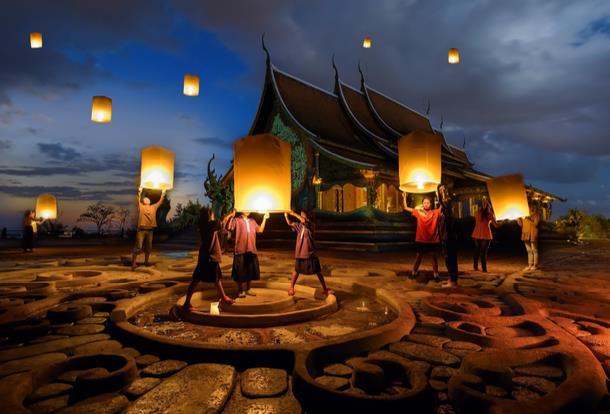(Bloomberg) -- In the heart of Macau stands a 56-story tower with soaring gold-trimmed arches. On the second floor of the L’Arc Macau, there’s a sight that would have been unimaginable a year ago: An abandoned room for high-end gamblers.
There are no tables, no dealers and no players. Carpets have been rolled up, leaving a trash-covered concrete floor. A sign on the VIP room reads “Heng Sheng Group,” one of Macau’s top junket operators, which shuttle Chinese high-rollers to exclusive gaming venues and finance their bets.
The dimming fortunes of Heng Sheng, whose name in Chinese translates to “everlasting rise,” reflects those of an industry that had soared since it was opened to foreign operators in 2002. The former Portuguese colony, which grew to become seven times the size of Las Vegas Strip, has started to lose business to a government corruption crackdown that is forcing casinos, hotels, junket operators and local officials to overhaul how they operate.
Heng Sheng and rivals including David Group and Gold Moon are among the most vulnerable. Chinese President Xi Jinping has widened his two-year battle against graft which has increased gamblers’ concern that big spending will attract scrutiny, and stricter visa rules have also deterred them from traveling to the world’s largest gambling hub.
Xi’s high-profile effort to catch “tigers and flies,” officials high and low, includes an investigation of the former chief of staff of his predecessor Hu Jintao, and led to the 2013 life sentence for Bo Xilai, former Chongqing party chief.
Shutting Rooms
Amid the pall, casino revenue fell in January for an eighth straight month. The slump has forced operators to shut some VIP rooms where the highest rollers can bet as much as HK$1 million ($129,000) per hand, according to Leon Liao, an analyst at Jefferies Hong Kong Ltd.
“The rate and scale of junket closures beginning in the fourth quarter of last year was faster than we were expecting,” said Jamie Soo, an analyst at Daiwa Securities Co. “More are likely to close this year.”
Heng Sheng has closed three of its 10 VIP rooms since October, including one at The Venetian owned by Sands China Ltd., according to company employees. A Heng Sheng official who would only give her surname as Lai said the company is operating normally and declined to disclose any information.
Heng Sheng had about 10 percent of the junket market share at its peak, Soo estimated.
At its peak about a year ago, Heng Sheng, which was set up in 2011, had HK$80 billion ($10 billion) in monthly rolling chip turnover, the amount VIPs bet inside its rooms, said Tony Tong, co-founder of Hong Kong-based Pacific Financial Services Ltd. and a veteran investor in Macau’s junkets.
Revenue Drop
Revenue has plunged by half at some junkets over the past few months and the drop may continue, said Tong, who also advises operators on how to collect gambling debts.
Junket operators invite wealthy gamblers to visit Macau and arrange private jets, helicopters and luxury cars to get them into and around casinos packed into a city half the size of Manhattan.
They also arrange hotel rooms and provide credit, skirting China’s limit on the amount of yuan that can be exchanged for the patacas needed to gamble. The companies typically draw a commission from casinos. High-end players who last year contributed 60 percent of the $44 billion casino revenue to the Chinese city.
Sheldon Adelson, the billionaire chairman of Sands China Ltd., said on Jan. 29 that fourth-quarter volume of Macau’s VIP junkets last year was the lowest in four years.
Casino shares fell for a third straight month in January, with the Bloomberg Intelligence Macau (China) Gaming Market Index dropping 3.7 percent, the longest falling streak since July 2012.
Sands China rose 0.8 percent to HK$38 and Galaxy Entertainment Group Ltd. climbed 0.1 percent as of 2:41 p.m. in Hong Kong trading today, while MGM China Holdings Ltd. fell 1.2 percent.
Smoking Ban
Traffic into junkets may dwindle further as the government said last week it intends to impose a full smoking ban on all areas at casinos. Private high-roller rooms operated by junkets are currently exempted from a smoking ban already implemented in other casino areas, further weighing on the VIP business, wrote DS Kim, an analyst at JPMorgan Chase Bank in Hong Kong, wrote in a Jan. 30 note.
There were 217 licensed junket operators last year, down from 221 in 2013, according to government figures.
A slump in junkets may mean job losses in Macau, the only Chinese city where gambling is legal.
Junket operators “have to cut people, the luxury cars they own and VIP rooms” to save costs, said Tong of Pacific Financial. “VIPs now say it’s a sensitive time and it isn’t convenient for them to come.”
Tong, who started doing business with junket operators in 2006, said he has reduced his investment in the industry by at least half in the past year because of the increasing risks. He declined to name the junkets he has invested in.
Lonely Floors
Outside another VIP room sharing the same L’Arc hotel floor as Heng Sheng’s, employees were chatting by the entrance with no gamblers in sight. The room is operated by David Group, which last month announced it was shuttering three of its seven rooms.
L’Arc, owned by Asia’s largest casino company, SJM Holdings Ltd., has its own VIP room on the 21st floor with nine tables, and only one was occupied when a Bloomberg reporter visited in mid-January.
“It’s quiet everywhere; we mainly serve regulars now,” a duty manager said, while trying to convince the reporter to set up a gambling account.
Across the street from L’Arc is billionaire Steve Wynn’s only casino in the territory. It was similarly quiet at Wynn’s seven members-only VIP sections.
While VIP rooms aren’t always fully occupied, high-roller traffic has dropped sharply, said Cloee Chao, a labor leader who works as a supervisor on Wynn Macau Ltd.’s gaming floor. “Sometimes you don’t even see one VIP all day in some areas,” said Chao, who has worked as a dealer in Macau for 17 years.
As China’s anti-graft campaign widens and the government imposes tighter rules for visiting the former Portuguese enclave, high rollers are asking for easier gambling destinations, Tong said. The Philippines, Vietnam, Singapore and the U.K. are among their choices.
“We have increased a lot of our overseas gaming business,” Tong said. “We go where customers demand to go.”
Read original article




